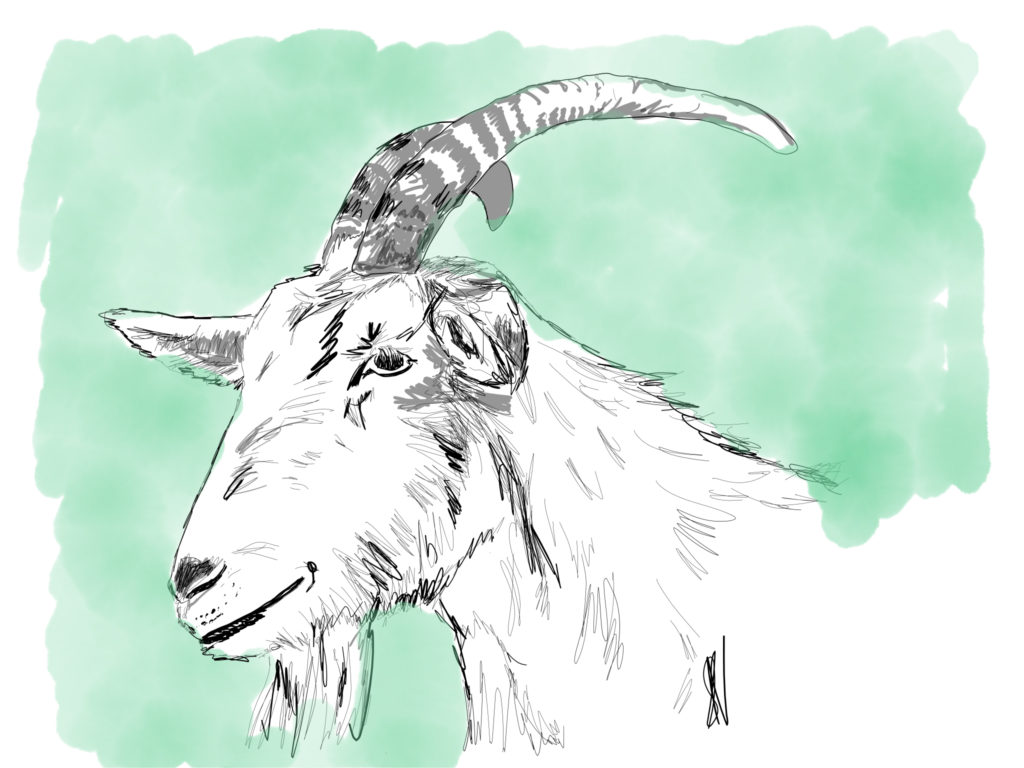In the Hebrew, the definition of atonement is to cover or cancel.
Despite all the regular sacrifices which cleansed individuals, the nation of Israel could still be guilty of sins and uncleanness that remained unacknowledged.
So, sacrifices were performed on the Day of Atonement to cleanse the whole nation from all sin (including unknown transgressions) in order for God to continue to live amongst his people.
Each person was to cease from labor, from eating, and from anything else that might be a distraction. They were to examine their hearts and repent of their sins.
On this one day of the year, atoning blood was brought into the room where God resided—the place known as the Most Holy Place or Holy of Holies.
It housed the Ark of the Covenant on which the Mercy Seat was found.
God revealed his divine presence in the form of a cloud which hovered above the Mercy Seat. (Leviticus 16:2) Only the high priest could enter as representative of the entire people.
Sacrificing a bullock
No unclean or sinful man could approach the holiness of God. Even the high priest, without a proper blood sacrifice, would expose himself to certain death in the Most Holy Place.
Therefore, the high priest offered a bullock as a sin-offering for himself and the priesthood. Some of the blood was sprinkled on the mercy seat and on the ground in front of the ark of the covenant in the Most Holy Place.
Sacrificing a goat
Next, a male goat was sacrificed as a sin offering for the people. Some of the goat’s blood was sprinkled in the same manner as the bullock’s blood in the Most Holy Place. When the high priest came out, the nation knew that their sins had been covered for another year.
The second goat
The high priest took a second goat and laid his hands upon its head, confessing all the sins and transgressions of the people.
This scape goat was led away into the wilderness and set free. This act symbolised the carrying away of the people’s sins that God had forgiven.

Portraits of Christ—Atonement in the New Testament
Every ritual and ceremony had significance pointing to a higher, deeper spiritual truth.
Atonement reveals God’s love for us.
God is holy. We are sinful. We cannot be reconciled to God unless sin is dealt with first. Sin has always been the problem. Sin is the barrier between us and God.
But God commendeth his love toward us, in that, while we were yet sinners, Christ died for us.
Much more then, being now justified by his blood, we shall be saved from wrath through him. Romans 5:8,9
And not only so, but we also joy in God through our Lord Jesus Christ, by whom we have now received the atonement. Romans 5:11
In whom we have redemption through his blood, the forgiveness of sins, according to the riches of his grace; Ephesians 1:7
Christ our sacrifice and substitute
Jesus came to earth specifically to die for our sins and in our place. He took the punishment for our sins. He fulfilled all that the Old Testament animal sacrifices represented.
But he was wounded for our transgressions, he was bruised for our iniquities: the chastisement of our peace, was upon him; and with his stripes we are healed. Isaiah 53:5
Who his own self bare our sins in his own body on the tree. 1 Peter 2:24
God’s grace and mercy
I’m so thankful for Jesus—his love, his life, his sacrificial death, his forgiveness, his gift of eternal life and for every privilege that comes with being God’s child.
The Thessalonians worshipped idols—false gods. They repented and eventually came to a saving knowledge of Christ.
And how ye turned to God from idols to serve the living and true God:
And to wait for his Son from heaven, whom he raised from the dead, even Jesus, which delivered us from the wrath to come. 1 Thess 1:9b,10
Before I became a Christian, I was under the mistaken impression that being a good person, keeping the Ten Commandments, doing good deeds and attending church was the way to curry favour with God. I thought that if my good actions outweighed my bad ones then at the end of my life, God would let me into heaven.
Sure, I knew all about Jesus dying on the cross for all mankind, but deep down I was still clinging to the good deeds I had done. I was self-reliant and self-righteous. I was trying to be my own savior. The idol I worshipped was myself. A terrible sin.
It took a while for me to realise that I was wrong and that I had sinned against the Lord in so many other ways. I needed to repent. To turn from sin, to turn from faulty thinking and to turn to Jesus to save me.

Amazing Grace
I am grateful to be a recipient of God’s amazing grace. Grace means showing kindness to people who don’t deserve it.
For by grace are ye saved through faith; and that not of yourselves: it is the gift of God: Not of works, lest any man should boast. Ephesians 2:8&9
Which means we don’t have to rely on ourselves or work or do good deeds for eternal life to be made right with God. We don’t have to die in our sins and be separated from God in Hell and the Lake of Fire. Revelation 20:14
Why? Because Jesus died in our place for our sins. Salvation is a gift.
Even trying to keep all of the commandments doesn’t cut it.
Knowing that a man is not justified by the works of the law, but by the faith of Jesus Christ, even we have believed in Jesus Christ, that we might be justified by the faith of Christ, and not by the works of the law: for by the works of the law shall no flesh be justified. Galatians 2:16
Doing good deeds should be as natural as breathing for Christians after they’ve received the gift of eternal life—after asking Jesus to save and forgive them. It’s evidence of Christ working in lives and hearts. It’s evidence of salvation.
For we are his workmanship, created in Christ Jesus unto good works, which God hath before ordained that we should walk in them. Ephesians 2:10
But, prior to salvation our good deeds are as good as dead. They don’t count, for they could never be good enough. Hence the saying, “We are saved for good works not by good works.”
Have you put your trust in Jesus—The lamb of God who takes away the sins of the world?
Bibliography
The Illustrated Bible Dictionary Part 1, 1980, Intervarsity Press, Leister, England.
The Quest Study Bible, 1994, Zondervan Publishing House, Michigan.
Unger, M.F. 1988, The New Unger’s Bible Dictionary, Moody Press, Chicago.


